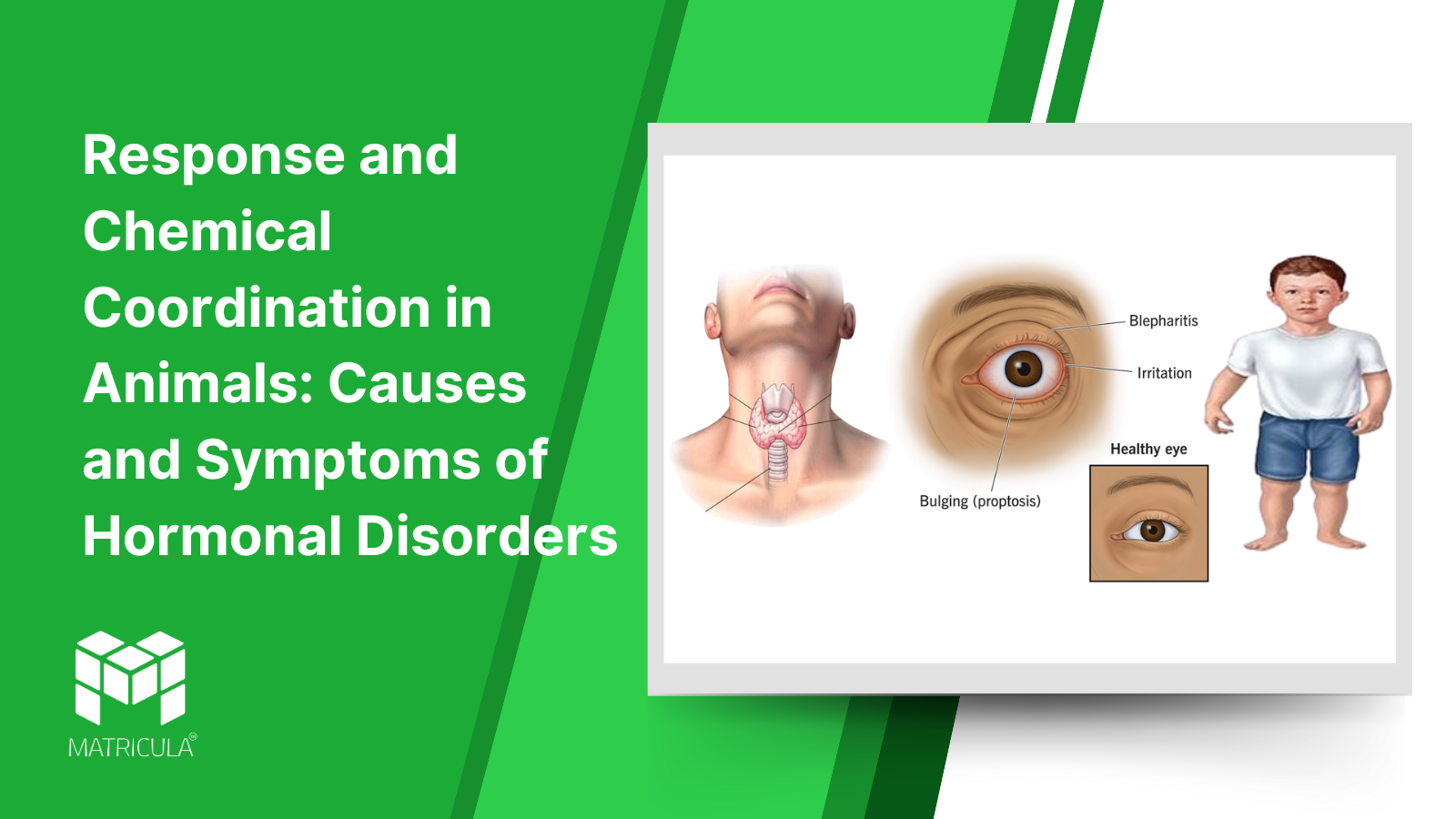Response and Chemical Coordination in Animals: Causes and Symptoms of Hormonal Disorders
Hormonal disorders occur when the endocrine glands produce too much or too little hormone, resulting in various physiological imbalances. Understanding these conditions helps in early diagnosis and effective treatment. Below are some common hormonal disorders, their causes, and symptoms.
1. Dwarfism
Causes:
- Dwarfism is primarily caused by insufficient secretion of the Growth Hormone (GH) from the pituitary gland during childhood.
- Genetic mutations or damage to the pituitary gland can also contribute.
Symptoms:
- Stunted growth with a shorter stature compared to age norms.
- Delayed puberty and underdeveloped muscles.
- Possible deformities in bone structure and facial features.
2. Diabetes Insipidus
Causes:
- This disorder results from a deficiency of the Antidiuretic Hormone (ADH), also known as vasopressin.
- Damage to the hypothalamus or pituitary gland due to injury, surgery, or tumors can lead to this condition.
Symptoms:
- Extreme thirst (polydipsia).
- Frequent urination (polyuria), especially at night.
- Dehydration and fatigue.
3. Goitre
Causes:
- Goitre is an abnormal enlargement of the thyroid gland, mainly due to iodine deficiency.
- It may also result from autoimmune conditions like Hashimoto’s thyroiditis.
Symptoms:
- Visible swelling in the neck region.
- Difficulty in breathing and swallowing.
- Hoarseness and cough.
4. Diabetes Mellitus
Causes:
- Type 1 Diabetes occurs when the immune system attacks insulin-producing cells in the pancreas.
- Type 2 Diabetes is often linked to insulin resistance, obesity, and a sedentary lifestyle.
Symptoms:
- Increased thirst and hunger.
- Frequent urination and unexpected weight loss.
- Fatigue, blurred vision, and slow healing of wounds.
5. Grave’s Disease
Causes:
- This is an autoimmune disorder that leads to excessive production of thyroid hormones (hyperthyroidism).
- Genetic factors and environmental triggers are key causes.
Symptoms:
- Enlarged thyroid gland (goitre).
- Weight loss despite increased appetite.
- Irritability, anxiety, and excessive sweating.
- Bulging eyes (exophthalmos).
Conclusion
Understanding the causes and symptoms of these hormonal disorders can help in timely diagnosis and effective treatment. Maintaining a healthy lifestyle, balanced diet, and regular medical check-ups are crucial steps in preventing and managing such conditions. Early detection plays a vital role in improving the quality of life for individuals affected by hormonal imbalances.

